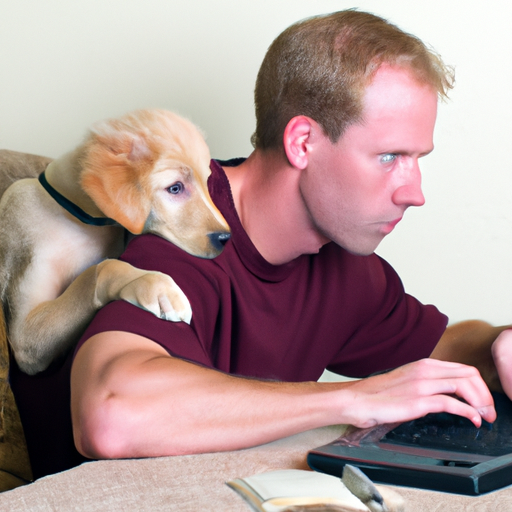As a caregiver, you may have noticed that your faithful canine companion sometimes nips or gently bites you. This behavior can be confusing and even concerning. I’m here to shed some light on why dogs nip and how to manage this behavior.
Understanding Canine Communication
First, it’s important to understand that nipping is a form of communication for dogs. It’s a way for them to express their feelings, whether it’s excitement, fear, or discomfort. Here’s some insight on nipping behavior:
- Playful Nipping: Dogs often nip during play. It’s their way of interacting with you, just as they would with other dogs.
- Fearful or Defensive Nipping: If your dog feels threatened or uncomfortable, they may nip as a warning sign. Try to identify any environmental triggers that might be causing stress for your dog.
Why Dogs Nip During Play
Dogs use their mouths much like we use our hands. They explore their world by tasting and nibbling. So, when a dog is in a playful mood, nipping is a natural behavior. Here’s what you need to know:
- Puppyhood: Puppies are especially prone to this behavior because they’re still learning how to control their bite strength. They may nip their siblings, toys, and unfortunately, human hands.
- Excitement: Dogs, especially younger ones, can get overly excited during playtime and may start nipping.
How to Discourage Nipping
Now that you understand why dogs nip, let’s discuss some ways to discourage this behavior.
- Redirection: When your dog starts to nip, redirect their attention to a toy or chew stick.
- Train “gentle” command: Teach your dog a “gentle” command. Reward them when they take treats or toys from you gently, without nipping.
- Consistency is key: Make sure everyone in the household is following the same rules to avoid confusing your dog.
What NOT To Do When Your Dog Nips
It’s important to remember that punishing your dog for nipping can often lead to more harm than good. Here’s what you should avoid:
- Avoid Physical Punishment: Hitting or yelling at your dog can lead to fear and aggression.
- Don’t Encourage Nipping During Play: If your dog starts nipping during playtime, stop the game immediately.
Professional Help for Nipping
If your dog’s nipping becomes frequent or aggressive, it may be time to seek professional help. A professional dog trainer or behaviorist can provide you with a personalized training plan.
| Professional | When to Contact |
|---|---|
| Dog Trainer | If your dog’s nipping is infrequent but doesn’t respond to basic training techniques |
| Behaviorist | If your dog’s nipping is frequent, aggressive, or paired with other concerning behaviors |
Frequently Asked Questions
Q: Why does my puppy nip so much?
A: Puppies are still learning how to control their bite strength and often nip during play or when they’re teething.
Q: Is nipping the same as biting?
A: No, nipping is usually a softer, less aggressive form of biting. It’s a common behavior during play or as a warning sign.
Q: How can I stop my dog from nipping strangers?
A: Consistent training and socialization can help. If the problem persists, consider seeking professional help.
Q: My dog only nips certain people, why is that?
A: Your dog may feel uncomfortable or threatened by certain people. Pay attention to the circumstances and try to alleviate any stressors.



